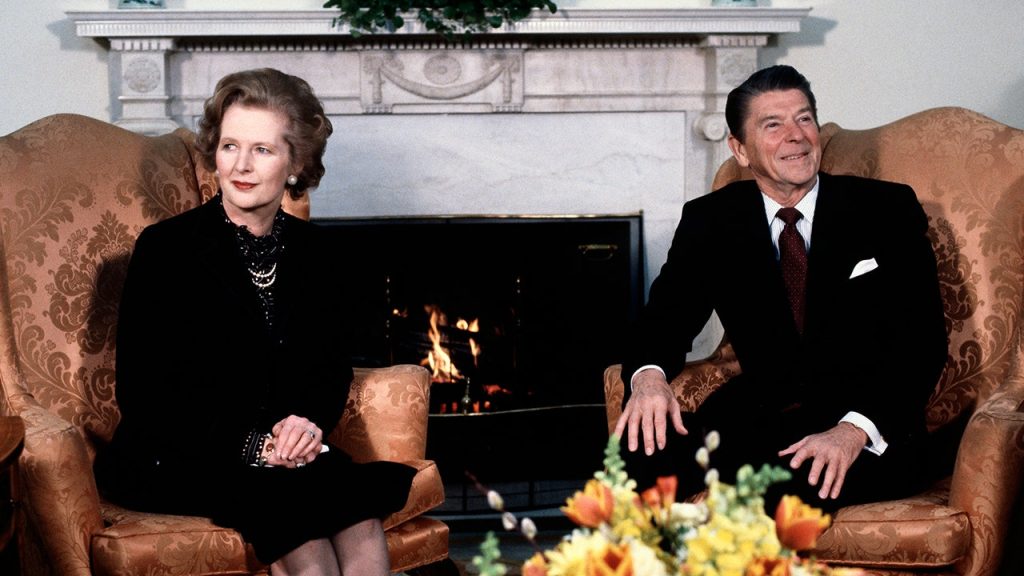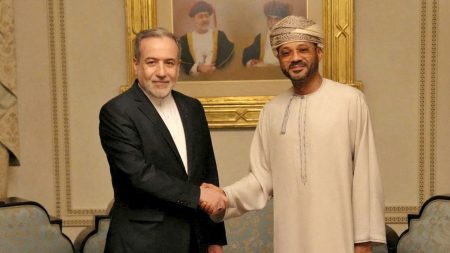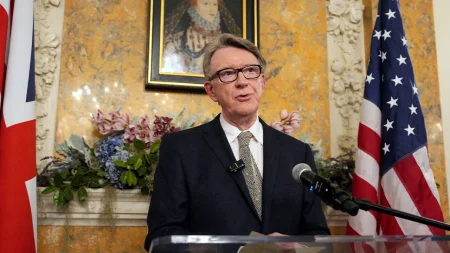The Enduring Legacy of the Reagan-Thatcher Special Relationship
The concept of a “special relationship” between the United States and the United Kingdom has deep historical roots, formally emerging during World War II as both nations united against Nazi Germany. However, many historians and diplomats believe this alliance reached its zenith during the Cold War under the remarkable partnership between President Ronald Reagan and Prime Minister Margaret Thatcher. Recently, former and current diplomats, government officials, and foreign policy experts gathered in London to commemorate what would have been Thatcher’s centennial birthday and to reflect on the enduring significance of her friendship with Reagan. Their partnership established a template for Anglo-American relations that has transcended partisan politics and changing leadership, continuing to influence bilateral relations even when the two nations face significant policy differences.
Fred Ryan, Chairman of the Board of Trustees of the Ronald Reagan Presidential Foundation and Institute, described Reagan and Thatcher as “political soul mates” whose connection was never forced or artificial. What made their alliance particularly effective was that they had established a relationship before either assumed leadership of their respective nations. They shared fundamental values and policy goals, including revitalizing their economies and confronting Soviet communism. Ryan, who served as Reagan’s Chief of Staff in the late 1980s, emphasized that their personal rapport transformed what might have been merely transactional diplomacy into a relationship characterized by exceptional trust and mutual respect. This foundation of personal chemistry combined with shared principles allowed them to work together effectively even during challenging moments, setting a powerful example for future leaders.
While the Reagan-Thatcher partnership is primarily remembered for its success in confronting Soviet communism and ultimately contributing to the end of the Cold War, experts at the London commemoration argued that its most significant legacy may be the establishment of an enduring commitment to the special relationship that subsequent leaders have felt obligated to maintain. This sense of obligation has helped the alliance weather occasional tensions and disagreements. Minor controversies, such as the removal of Winston Churchill’s bust from the Oval Office during the Obama and Biden administrations (decisions later reversed by President Trump), have never seriously threatened the fundamental partnership. The alliance has demonstrated remarkable resilience across different administrations and party changes on both sides of the Atlantic.
The election of Donald Trump to a second term initially raised concerns about the future of the special relationship, particularly given his America First policies, implementation of steep tariffs, and sometimes critical stance toward traditional alliances like NATO. However, both Trump and British Prime Minister Keir Starmer have made notable efforts to maintain positive relations. Trump frequently references his Scottish heritage as a personal connection to Britain, while Ryan points out that the U.S.-UK partnership is deeply ingrained in the “DNA” of both nations, with roots extending back to the colonial era before the American Revolution. Despite their significant political differences, Trump and Starmer appear to be developing a functional working relationship that demonstrates the enduring nature of the alliance beyond personal or ideological compatibility.
Today, the U.S.-UK relationship faces its most significant challenge since the Cold War with Russia’s 2022 invasion of Ukraine presenting a renewed threat from Moscow. This situation draws inevitable comparisons to the Cold War era when Reagan and Thatcher successfully engaged with Soviet leader Mikhail Gorbachev while maintaining a firm stance against Soviet expansionism. Trump’s approach to Russian President Vladimir Putin, including recent meetings described as “extremely productive,” has raised questions among security experts about whether Putin is merely offering diplomatic gestures without taking concrete steps to end the Ukraine conflict. Following their first meeting in August, Russia actually intensified its aerial bombardment of Ukraine rather than reducing military operations, raising doubts about what was actually accomplished.
Though Prime Minister Starmer initially supported Trump’s diplomatic engagement with Putin, the announcement of a second meeting comes at a time when the effectiveness of this approach remains unproven. Ryan acknowledged the significant differences between today’s Russian threat and that of the Soviet era but emphasized that both the U.S. and UK recognize the challenge posed by Putin’s Russia. He expressed hope that through their “close relationship,” the two nations can remain “united and allied in standing up to it.” The current situation tests whether the special relationship cultivated by Reagan and Thatcher can adapt to new challenges while maintaining its core strength. As global tensions rise and the international order faces unprecedented pressures, the legacy of the Reagan-Thatcher partnership provides both a historical blueprint and an aspirational model for how the U.S. and UK might navigate these turbulent times together, even when their leaders come from different political traditions.













